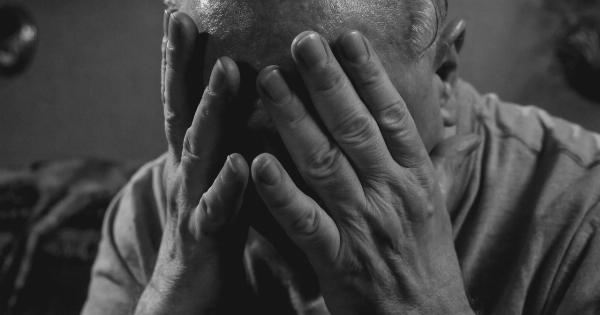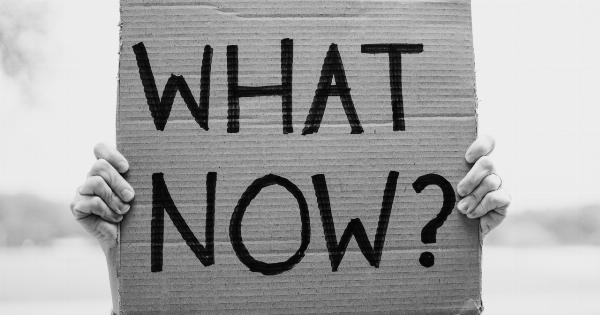Orgasm is a vital part of sexual satisfaction for both men and women. However, some men experience difficulties in achieving orgasm, a condition known as absent orgasm.
While men typically have fewer problems with orgasm compared to women, this issue can still have a significant impact on their sexual health and overall well-being. In this article, we will explore the prevalence of absent orgasm in men and discuss potential prevention strategies.
Understanding Absent Orgasm
Absent orgasm, also referred to as anorgasmia or delayed ejaculation, is a condition where a man is unable to reach climax or experiences a significantly delayed orgasm during sexual activity.
While occasional delays in orgasm are normal, persistent and recurring difficulties can lead to frustration, stress, and relationship problems.
There are two primary types of absent orgasm in men:.
1. Primary Anorgasmia:
In this type, a man has never experienced an orgasm, even when engaging in sexual activity with a partner or through self-stimulation. Primary anorgasmia is relatively rare and can have a deep impact on one’s self-esteem and sexual confidence.
It often requires professional help and counseling to address the underlying causes.
2. Secondary Anorgasmia:
This form of absent orgasm occurs when a man who previously had no difficulty reaching climax now experiences difficulties in achieving orgasm.
Secondary anorgasmia can be caused by various factors, including physical, psychological, or relationship-related issues.
Prevalence of Absent Orgasm in Men
While exact prevalence rates of absent orgasm in men are challenging to determine due to underreporting and individual variations, it is believed to be less common compared to women.
According to some studies, approximately 4-8% of men experience some form of anorgasmia.
Primary anorgasmia is the less common type, with estimates suggesting a prevalence of less than 1% of men. On the other hand, secondary anorgasmia appears to be more common, affecting about 2-4% of men.
The prevalence of absent orgasm tends to increase with age. This may be due to changes in hormones, the use of certain medications, or the presence of underlying medical conditions such as diabetes or cardiovascular disease.
Additionally, psychological factors, including stress, anxiety, depression, and past traumatic experiences, can contribute to the development of absent orgasm in men.
Prevention Strategies for Absent Orgasm
Prevention strategies for absent orgasm in men involve addressing the potential underlying causes and adopting healthy lifestyle habits. These strategies include:.
1. Communicating with Your Partner:
Establishing open and honest communication with your partner about your sexual needs and desires can help reduce anxiety and create a supportive environment for sexual exploration.
Discussing any concerns or difficulties you may be experiencing can aid in alleviating stress and improving overall sexual satisfaction.
2. Managing Stress and Anxiety:
Stress and anxiety can significantly impact sexual performance and orgasmic function. Engaging in stress-reducing activities such as exercise, meditation, and deep breathing techniques can help alleviate these psychological factors.
Seeking professional help, such as therapy or counseling, may also be beneficial to manage stress and anxiety associated with absent orgasm.
3. Assessing Medications:
Some medications, such as selective serotonin reuptake inhibitors (SSRIs) commonly used to treat depression and anxiety, can interfere with orgasmic function.
If you suspect that your medication may be causing absent orgasms, consult with your healthcare provider to explore alternative options or adjust the dosage.
4. Addressing Medical Conditions:
Certain medical conditions, such as diabetes, neurological disorders, or hormonal imbalances, can contribute to absent orgasm in men.
It is important to consult with a healthcare professional to manage these conditions effectively and explore potential treatment options.
5. Seeking Professional Help:
If absent orgasm persists and significantly affects your quality of life, it may be beneficial to seek professional help from a therapist or sexual health specialist.
They can assist in identifying and addressing any underlying psychological or relationship issues that may be contributing to the problem.
Conclusion
Absent orgasm in men, although less prevalent than in women, can have a significant impact on sexual satisfaction and overall well-being. It is essential to understand the various types of anorgasmia and address the potential underlying causes.
By adopting prevention strategies such as open communication, stress management, medication assessment, addressing medical conditions, and seeking professional help, men with absent orgasm can work towards enhancing their sexual experiences and improving their overall quality of life.
























